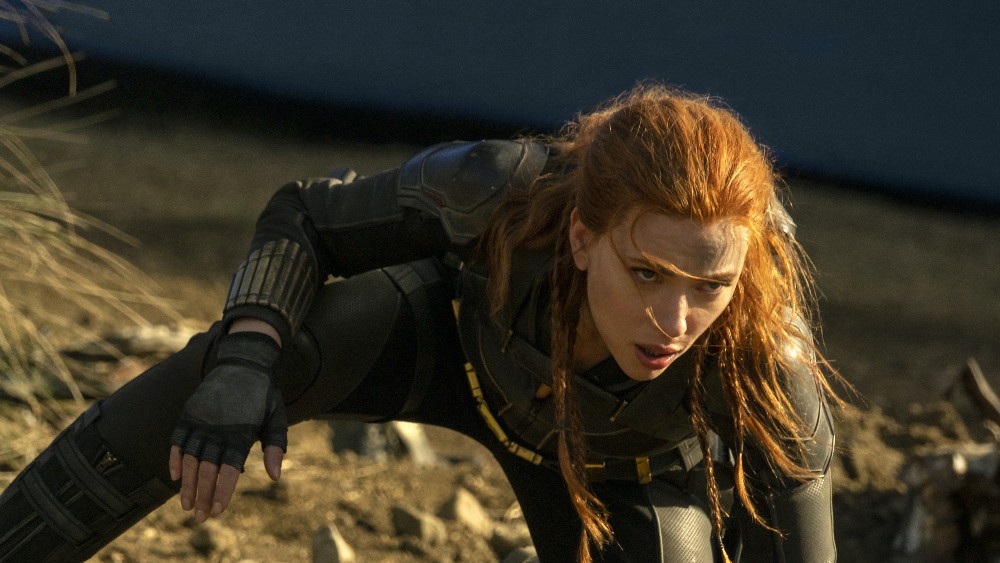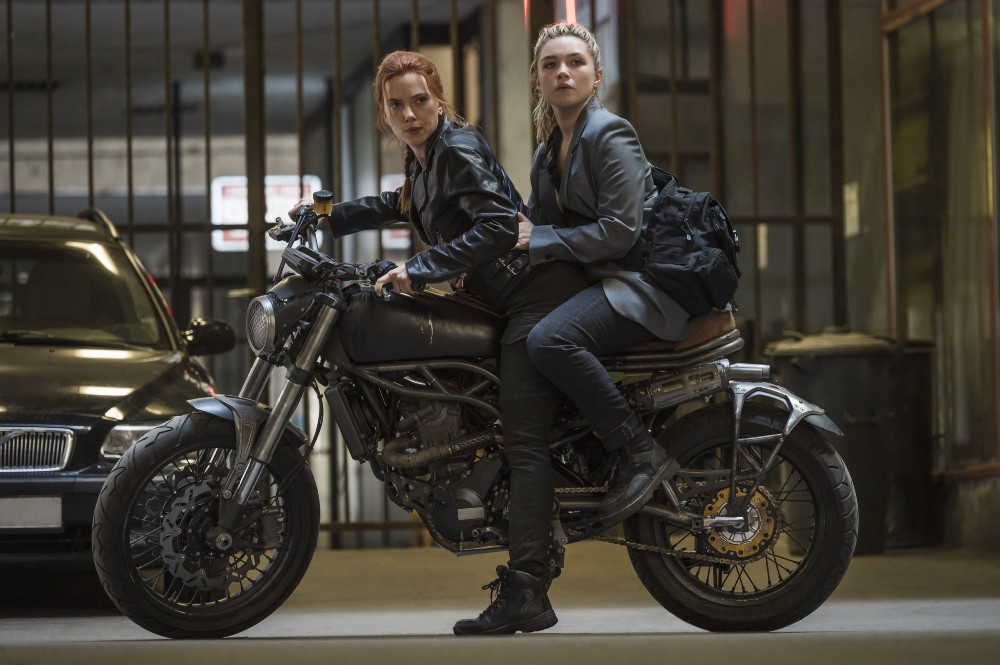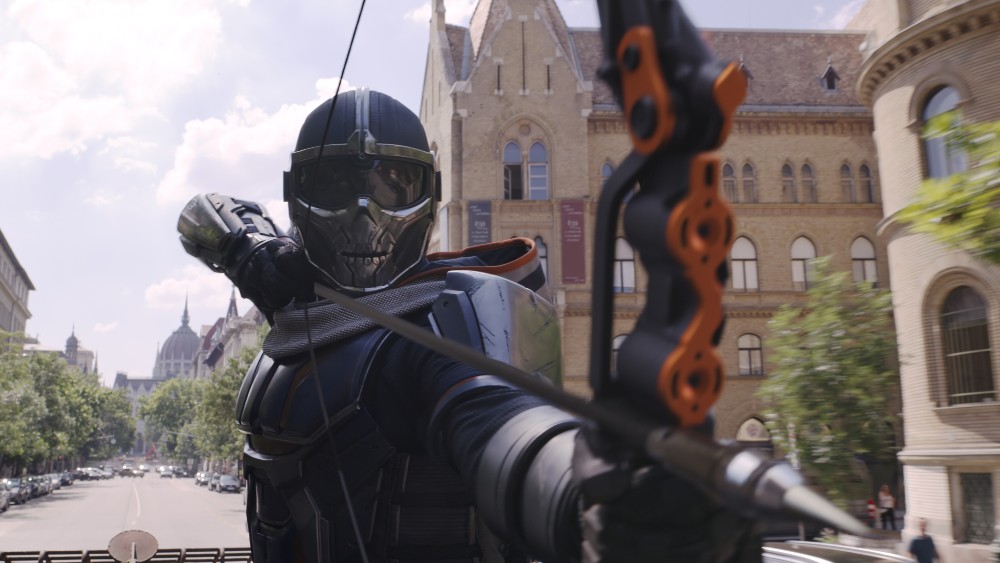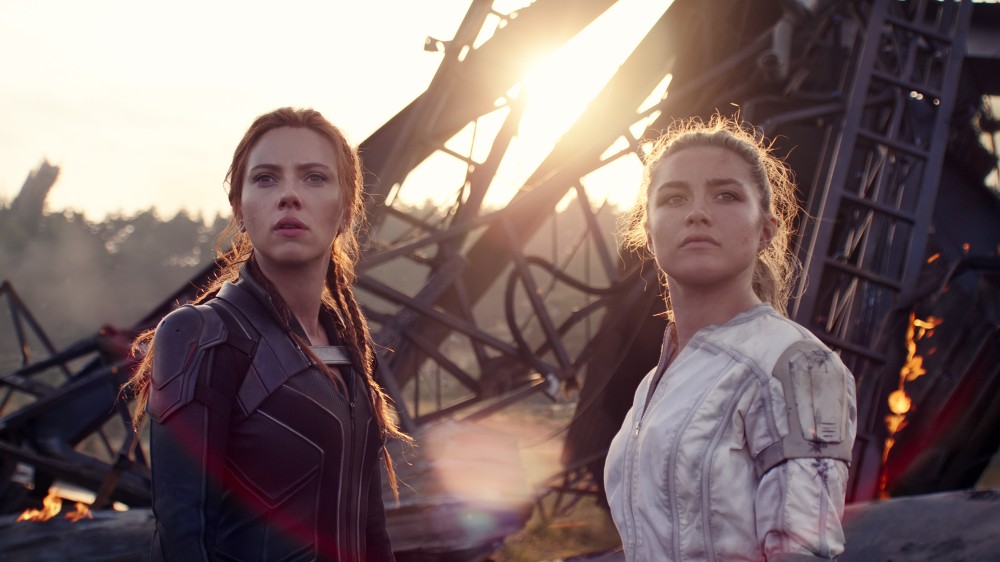
Fans of the Marvel Cinematic Universe had to wait over a year for the start of the so-called “Phase Four,” the post-Tony Stark, post Infinity War world of the bulging Marvel movie franchise that has made billions and enthralled the world with 23 prior movies and counting.
The wait is over, as Scarlett Johansson will finally be back on the big screen as the titular Black Widow. Whether the wait was worth it, however, is another matter entirely.
Perhaps, it’s the buildup of so much anticipation, or maybe it’s because a 24th installment faces an uphill battle to dazzle with its originality. Or maybe it’s because Black Widow is simultaneously too over the top and too muted to leave a lasting mark. Whatever the reason, Disney’s now-signature franchise has seen better days and hopefully will have greater ones ahead than this half-baked entry.
Black Widow is an origin story, like many of its 23 predecessors. This time, it’s the turn of Natasha Romanoff (Johansson) to have her childhood dissected, and we know from prior films that she’s a KGB-trained assassin with a dicey past. It turns out, that sinister beginning includes suburban Ohio and a mind control camp, though back in the near-present day she is in between Avenger gigs while trying to find her place in the world.
Soon, she re-encounters figures from her seemingly idyllic but actually ominous past, including the equally dexterous and lethal Yelena Belova (Florence Pugh, the best thing in the film by far), the Red Guardian (David Harbour) and Melina Vostokoff (Rachel Weisz). You can call them a nuclear family if you want to make hay of their Russian origin, but really, theirs is a somewhat more dysfunctional quartet. Eventually, a common enemy emerges, the menacing Dreykov (Ray Winstone) who runs the aptly named Red Room. Bullets fly, cars collide, punches are thrown, and the world is threatened. It’s the well-known Marvel formula, though its familiarity and safety is never a guarantee of success.

For Black Widow, though, our acquaintance with the style and with some of the backstory is a bug, not a feature. The nostalgia of these stories is well-known, their World War II-related comic book origin an endearing thread that harkens back to heroic times. Those days of glory also have familiar villains — Nazis, Soviets, Cubans. The problem for Black Widow, though, is that it spends time dwelling not just on actual historic past, but on its own franchise’s. The Avengers crew, The Avengers film, and THE particular avengers are all mentioned — over, and over, and over again, as if Eric Pearson the screenwriter (who also penned Thor: Ragnarok) was unsure if audiences understood what world his heroine inhabits, or as if he thought they needed convincing to like her. Each time we are finally being pulled into caring about how Natasha came to be Black Widow, why she snarls like she does, and how it is that there is a heart and sense of duty beneath the hardened façade, a misplaced allusion to Captain America distracts you into thinking about Chris Evans, who even the most-superficial fan of this franchise knows exited stage left altogether a few years back. Rather than looking forward, Black Widow insists on making you look backwards, a high-wire balancing act that mostly collapses on itself.
Familiarity, of course, is the imprimatur of these movies. Producer Kevin Feige, who has made this world the phenomenon that it is, is also behind this movie, though his choice to give the helm to the mostly unknown Austrian director Cate Shortland may also prove costly. Ms. Shortland appears, herself, unsure what to do with Mr. Pearson’s unsure script, which cannot ever decide which of the characters are bad and which are just pretend bad, erasing part of Black Widow’s allure to begin with.

Sure, you will be entertained. Marvel/Disney spares no expense and the Lorne Balfe soundtrack is markedly different– in a good, Soviet sort of way — from all the others in the franchise, while Cinematographer Gabriel Beristain shoots the movie with a neutral-enough palette to not get in the way of its bombastic special effects. Those come, too, particularly at the hands of enigmatic nemesis Taskmaster, who brings a cool fighting style into the proceedings but, once again, is trying too hard to remind you of the heroes from MCU Phases past. Your eyes may be glued to the screen as the explosions mount, the edifices crumble, and the Widows attack, but even the one-year plus COVID break will not be enough to make you forget that you have seen all of this before with different colors, names, and actors, many times over.
Perhaps it’s that latter feature — the different actors — that saves Black Widow from being entirely forgettable. Ms. Johansson’s strengths as a mostly troubled superheroine are by this point well known, and one must also welcome the addition of the surging Ms. Pugh, who holds her own — both comedic and action-wise — in this movie. Ms. Weisz is a big screen veteran of course, but still nails the playful, drab, and sarcastic Soviet scientist, while Mr. Harbour excels as a washed-up, wannabe big shot hero. They are a dysfunctional sort, but between the choppy scenes and not always-funny dialogue, they somehow become our dysfunctional sort.
Black Widow’s problem may be summed up by its choice of opening credits song — Nirvana’s Smells Like Teen Spirit. It’s a strange selection, because the lyrics tell of a stupefied audience that demands to be entertained with less dangerous, lights-off, low-brow offerings. Is Nirvana’s cynical view of youth’s lack of desire for intellectual complexity really how those behind this world think of its audiences? It’s particularly pitiful because there was another tune available that would have been much more apropos this complex character, the song by Iggy Azalea that bears the same name as this movie. There, Ms. Azalea tells of a woman you’re going to love until you hate her, and warns her enemies that they should have known better than hating on her harder. That Black Widow ends up being more mind-control type, easy entertainment—as projected by the initial sequences—ends up being an omen for disappointment, as it turns out.
Grade: B-
Black Widow opens on July 9, 2021, simultaneously in theaters and through Disney+ with Premier Access.
All pictures courtesy Marvel Studios/Walt Disney Pictures; Photo credits, as noted.






